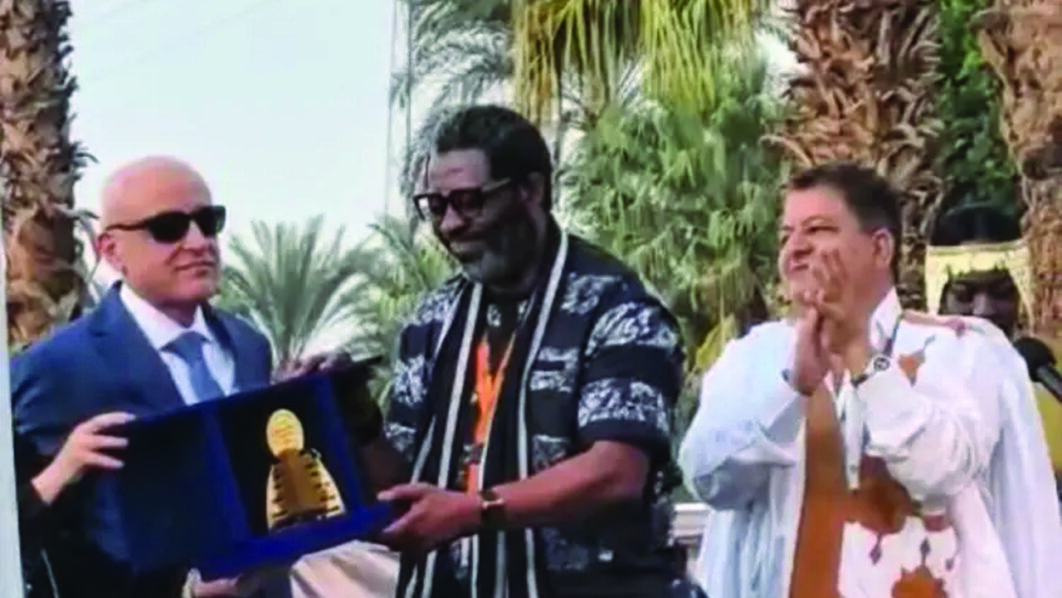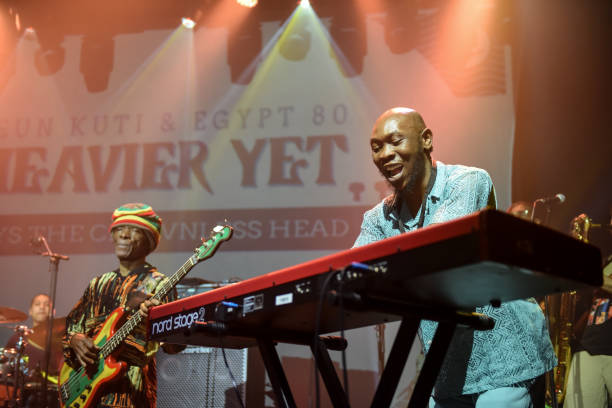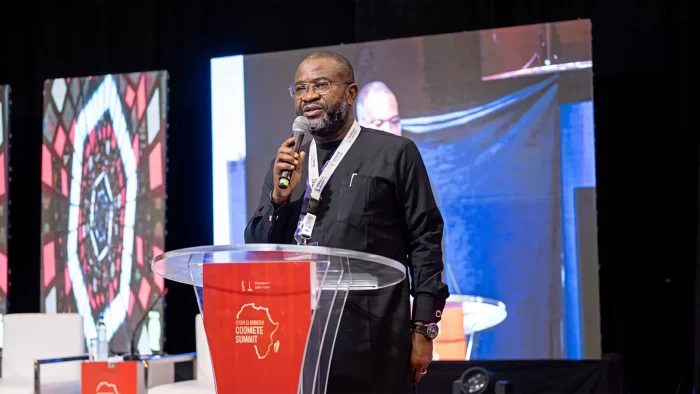
It was the accomplished filmmaker and member of The Academy of Motion Picture Arts and Sciences, Femi Odugbemi, who first broke the cheery news on his social media handles. The news was that The Man Died, the film that takes audiences through Wole Soyinka’s harrowing 27 months of imprisonment during Nigeria’s civil war had received the Radwan Elkashef award for Best Film that tackles an important issue at the prestigious Luxor International Film Festival, which closed on January 16, in Luxor. Egypt. The award, which Odugbemi received on behalf of the Director of the film, Awam Amkpa, was named after the late Egyptian film director, Radwan Elkashef. “I received the award on behalf of our incredible Director, Amkpa, and our amazing cast and crew who sacrificed so much to bring this project to life.” Odugbemi wrote as he shared images of the award and the crew with festivaliers in Luxor. Odugbemi added, “we of course dedicated this prize to the inspiring, courageous and consistent life work of the incomparable Prof. Wole Soyinka.”
[ad]
Screened on January 12 in the Big Hall of the prestigious Jolie Ville-The Nile, located in Luxor, Egypt, a city famously known as the world’s greatest open-air museum’. The screening marks a significant moment in the festival’s 14th edition. First screened in Lagos, in July 2024, to mark Soyinka’s 90th birthday anniversary, The Man Died featured in the competition section with 10 other films from nine countries, including Egypt, Tunisia, Algeria, Senegal, Cameroon, Togo, Rwanda and Madagascar.
Inspired by Soyinka’s memoir of his 22 months in prison during the Nigerian civil war, which bears the same title, The Man Died takes audiences through Soyinka’s harrowing 27 months of imprisonment during Nigeria’s civil war. The film explores Soyinka’s personal journey of survival and introspection while being detained by the Nigerian government. It delves into his mental and emotional turmoil as he endured isolation and torture, finding solace only in his thoughts and written words. Soyinka, who sought peace between Biafra and the Nigerian government, is framed for alleged sedition following his visit to Biafran leader Emeka Odumegwu-Ojukwu. His story becomes a powerful exploration of the resilience of the human spirit in the face of political oppression.
The film features a strong cast, with Wale Ojo portraying Wole Soyinka and Sam Dede playing his chief interrogator, Yisa. It captures Soyinka’s psychological battle and the broader context of Nigerias political landscape during the 1960s.
Amkpa, a Nigerian-American director, reflected on the creative process behind The Man Died, emphasising the importance of authenticity in telling Soyinka’s story.
Amkpa noted that the Nollywood industry has evolved significantly, highlighting the technical progress that now defines Nigerian cinema.Though yet to be formally released to the theatre, the well-made film has continued its run of festival circuits and educational institutions, as programmed by the promoters, the Foundation for the Promotion of Documentary Films in Africa, FPDFA, otherwise known as the iREPRESENT International Documentary Film Forum, iREP.
The screenings are part of the strategic agenda to make the film register its impact in the two most important target audiences Festival circuits and Educational institutions before it hits the commercial phase theatre screening and online streaming,according to the iREP directorate.
Produced by Zuri 24 Media, the film which has also been screened at various prestigious international venues, including the Streamfest at the Labone Dialogues in Accra, Ghana, is set to continue making its rounds in prominent academic institutions worldwide. Notable screenings are scheduled for Florence, Italy, Abu Dhabi, South Africa, and at institutions like Harvard University, Oxford University, and Ithaca College.
The film continues to receive critical acclaim and is being reviewed by leading international film festivals such as Berlinale in Germany, the African Film Festival in New York, and FESPACO in Burkina Faso. It is also under consideration by major global streaming platforms and distribution channels, further solidifying its growing international impact.
[ad]
The 14th Luxor African Film Festival, which ran between January 9 and 14, 2025, centred on the theme African Cinema: Full Moon 14, which celebrates the maturation of the industry, which has gained international recognition. The festival’s visual artwork, created by Mohamed Abla, depicts Africa on a magical journey toward a full moon, symbolising the creative heights African filmmakers have reached.
The image of the full moon reflects a sense of completeness in African cinema, which continues to break barriers and rise beyond previous limits. Festival president Sayed Fouad connects the theme to Egypt’s rich cultural history, explaining that the full moon 14represents the industry’s evolution.
According to him, African cinema is now firmly established as a powerful global force. Festival Director Azza Elhousseiny draws a parallel between space exploration and African filmmaking, emphasizing how the digital revolution serves as a vehicle for African narratives to reach a worldwide audience.
Supported by Egyptian ministries and cultural institutions, the festival positions Luxor as a hub for African cinematic achievements. The festival also showcases the talent and artistry of filmmakers from the continent.
[ad]








